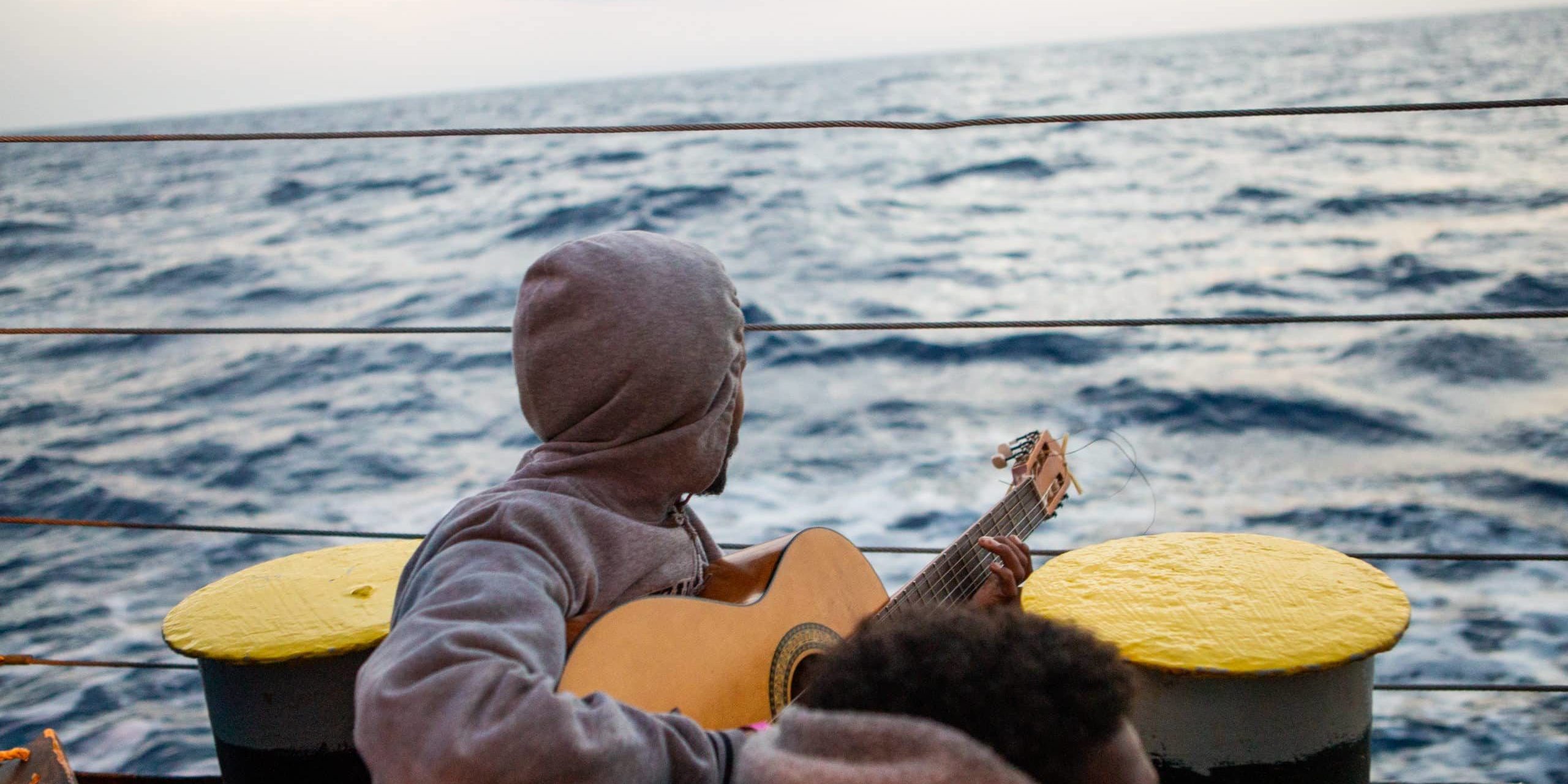On Saturday, 21th of April, Sea-Watch rescued a rubber boat 65 nautical miles north off the Libyan coast in a difficult operation with moments of tension when people, crammed into the dinghy, saw the arrival of the Libyan Coast Guard, who announced intentions to bring them back to Libya. People started to jump into the water, throwing themselves at risk of dying, just to not have to go back to Libya. Sea-Watch was able to rescue them, bringing to safety 94 people, among them 21 women and 2 newborns, one only 16 days old.
The medical staff on board reported a general condition of debilitation. The people were rescued in an obvious state of dehydration and malnutrition, the consequences of long and hard periods in captivity in Libya.
The testimonies collected report cases of multiple interceptions at sea, all tell of violence suffered in Libya and experiences of (even long) periods of imprisonment.
A 25-year-old Ethiopian man claims to have fled his country as a political prisoner and to have spent 10 months in Beni Walid prison with about 500 people, where he saw 82 people die. One after the other.
“We were forced to dig mass graves in the desert to bury the corpses of people who gradually died”. “Until there were at least 3 corpses in the room we were piled up in, the bodies were not moved”.
He tells us about actual slave markets, very specific places, where people are divided into groups of 10-40 people according to nationality, and sold for 200-800 Libyan dinars. “They sell us like goats”.
The sale takes place to employ people, especially citizens from sub-Saharan Africa, in various activities of forced labor and/or to extort money from them by blackmailing them, forcing them under torture to call their families, asking for more money for their release.
The Ethiopian man tells of having tried to escape from Libya by sea 3 times.
“This denotes how the European policies of containment and push-back on the Libyan route only fuel and make more ferocious the cycle of abuse and violence against people trying to escape from Libya, where the trafficking of human beings seems to have taken the form of a real slave market” comments Giorgia Linardi, Sea-Watch spokesperson in Italy.
She adds, “A person tries to escape, is intercepted at sea, is forcibly sent back, imprisoned, tortured, extorted over and over again, to the point of succumbing, due to the devastating physical and psychological impact of these experiences. Or, if he or she is lucky and manages to escape the meshes of the containment and rejection system put in place by Europe, they are rescued at sea by a European organization and brought to a safe place.”











